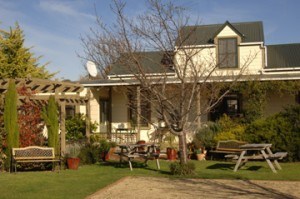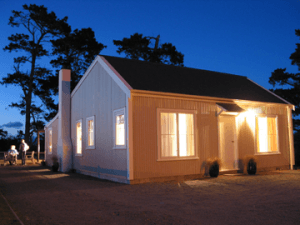Speak only English
Is it important that more people speak English? Only this week, David Cameron launched a new scheme encouraging more Muslim women to learn the language, one argument being that the inability of many to do so weakens their voice , and in doing so strengthens radicalisation.
It’s true that ignorance of English is a personal cost for anyone living here, perhaps a personal tragedy, but I doubt it’s a long-term social problem.
The vast majority of immigrants do learn English, and while immigration discontent can be fuelled by the language issue, as in Catalonia, where migrants tend to learn Castilian, our tongue is hardly under threat. English is so all-powerful in fact, that it has even replaced Arabic as the lingua franca of jihad, and recordings of foreign fighters in Syria show Chechens, Turks, Arabs and Brits communicating in the language of the King James Bible. Isis has even opened two English language schools in Raqqa for the families of foreign fighters. So it’s on the same page as the prime minister, in that regard at least.
I’m much more worried about the number of people learning the other historic language of England; the language used at the first parliament, spoken at Runnymede in 1215, a language that still features in much of our legal system and which, until 1858, was the only one on British passports: French.
Last year, just 10,328 people took French A-level in Britain, a fall from 13,907 in 2010; German has also declined sharply and, although Spanish has increased, the overall number taking the three largest European languages had gone down by 3,000.
The story is the same with GCSEs, with last year seeing declines of 6% in French and 10% in German; this was despite the coalition briefly reversing the long-term fall by including a foreign language in the eBacc.
Much of the blame for this can be placed with the Blair government, which dropped the requirement for foreign languages at GCSE level. As a result, the number of people taking them soon went down by almost a half. But the same trend is noticeable in the US, where in just five years French college applications fell by almost a quarter.
It’s probably not an exaggeration to say that the study of French is dying in the English-speaking world; and who can blame pupils for dropping what is a difficult subject? I certainly would have. I hated French at school, mainly because I was no good at it, and only in my late 20s fell in love with all things Gallic, and started taking evening classes.
By then, of course, it was an uphill struggle: life gets busier, and the brain finds it harder to absorb new ideas – which is why, one-by-one, our musical tastes, political views and haircuts get stuck at whatever age we gave up on trying new things. (I’m not quitting: after all, Alfred the Great learned Latin in his 40s, and he had the Vikings to contend with.) My reading has improved but my spoken French is still reminiscent of the undercover British agent in ‘Allo ‘Allo.
It’s oddly paradoxical that this decline in linguistic decline happened at the same time that a new generation of progressive Britons embraced cosmopolitanism and cultural diversity. It often seems that this enthusiasm was more in the abstract. One can be keen on having lots of foreign restaurants nearby yet still be strangely incurious about other cultures.
Our ignorance of the EU’s other 23 tongues can’t help the British Europhile cause. From its outset, the European project was an institution shaped by bilinguals from border regions: Robert Schuman came from Luxembourg, the son of an Alsatian; Konrad Adenauer was a Rhinelander, Paul-Henri Spaak Belgian, and Alcide De Gasperi a Tyrolean.
The monolingual British have always been left out of the conversation and Edward Heath’s mangled, awkward attempts at French symbolised how, deep down, we never really fitted in (by contrast his opponent, the Eurosceptic Cassandra Enoch Powell, spoke up to a dozen languages, and in the week of the 1975 referendum gave speeches in German, French and Italian).
And while Britons have become complacently used to the cultural dominance of the Anglophone United States, we’ve recently been caught unaware by how much news is now made in France and Germany, where the great questions of the 21st century are being asked and answered. The refugee crisis emphasises how dependent English monolinguals are for their news on a shrinking minority of people who understand German.
I haven’t even raised the numerous ways in which knowledge of French can improve our lives, such as an appreciation of literature, film or music; nor the famous Charlemagne quote that a new language gives one a new soul – something rather echoed by findings in neuroscience that suggest bilingualism allows the brain to look at ideas in a fresh way.
The Cameron government ruled that from 2014 all children aged 7-11 must reach some proficiency in a foreign language, which is good news, but French will increasingly slide. My daughters’ primary school teaches only Spanish. Having found this out, I promptly decided to take them to a French school every Saturday.
I appreciate this is possibly just one more thing that they’ll hate me for me when they’re older. And it is partly an act of stubbornness on my part, raging against the modern world like that French farmer who drove his tractor into McDonald’s.
It’s also my inner reactionary, crying out for a more civilised era when French was the language of diplomacy and culture, and the European aristocracy all spoke the language rather than MTV English (it’s a little known fact that French is the mother tongue of the German aristocrat Prince Philip).
But I also like to hope that this is also the start of a long love affair with the language for my children, and that French does not follow Latin into becoming a niche cultural pursuit understood by a tiny minority. For once a tradition is broken it is very hard to resurrect, except as kitsch.














Recent Comments